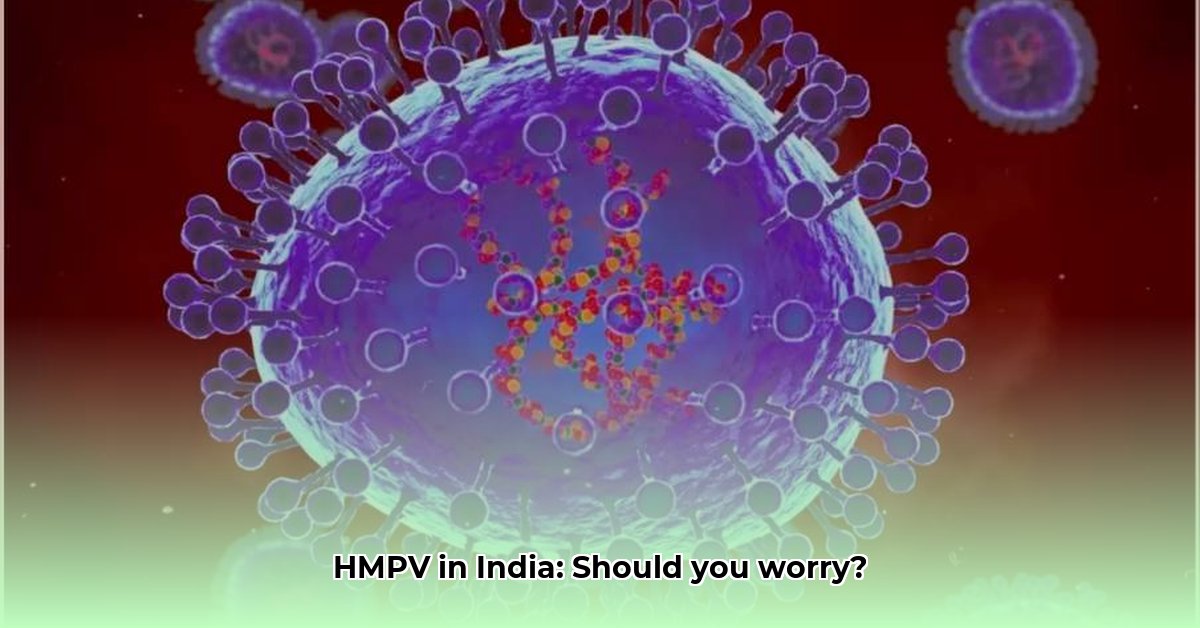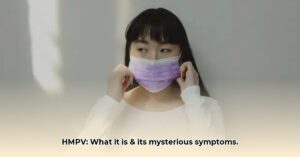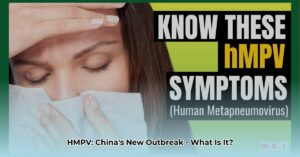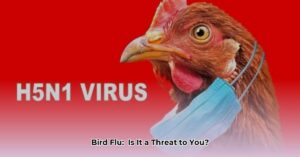Lead Paragraph: India remains free of reported human metapneumovirus (HMPV) cases as of January 26, 2025, according to Dr. Atul Goyal, Director General of Health Services. This information comes amid reports of increased HMPV activity in other regions, particularly China. However, even in China, the rise in cases is not considered an epidemic.
What is HMPV?
HMPV is a respiratory virus that typically causes mild to moderate cold-like symptoms, including a cough, runny nose, and sometimes fever. In some cases, it may present with more flu-like symptoms, such as body aches and fatigue. While generally not a cause for serious concern, HMPV can pose a greater risk for vulnerable populations like infants, young children, the elderly, and individuals with weakened immune systems.
Should I Be Worried About HMPV in India?
Based on current information from Dr. Goyal and as of January 26, 2025, there is no need for immediate concern regarding HMPV in India. No cases have been officially reported within the country. However, health experts emphasize the importance of staying informed and practicing good hygiene.
HMPV in China vs. India
The recent increase in HMPV cases in China has raised questions about the potential for spread to other regions. However, India’s current situation differs significantly. While China has seen a notable rise in HMPV detections, predominantly among children, India has not experienced a similar surge. This may be due to a variety of factors, including differences in surveillance methods, population density, and public health measures. Ongoing research is crucial to better understand these dynamics.
How to Protect Yourself from HMPV
Currently, there is no specific antiviral treatment or vaccine for HMPV. The most effective protection comes from preventative measures, primarily focusing on good hygiene practices:
- Frequent Handwashing: Wash your hands thoroughly with soap and water for at least 20 seconds, especially after coughing, sneezing, or being in public places. If soap and water are unavailable, use an alcohol-based hand sanitizer containing at least 60% alcohol.
- Respiratory Etiquette: Cover your mouth and nose with a tissue or your elbow when you cough or sneeze. Dispose of used tissues immediately and wash your hands afterward. This helps prevent the spread of respiratory droplets that can transmit the virus.
- Avoid Close Contact: Minimize close contact with individuals exhibiting symptoms of respiratory illness. Consider wearing a mask in crowded indoor settings, especially during periods of increased respiratory virus activity.
FAQs
What are the symptoms of HMPV?
HMPV typically causes cold-like symptoms such as a runny nose, cough, and sometimes fever. Less commonly, it may cause more flu-like symptoms, including body aches and fatigue.
How is HMPV treated?
There is no specific treatment for HMPV. Most people recover with rest, fluids, and over-the-counter medications to manage symptoms like fever and aches.
Is there a vaccine for HMPV?
No, there is currently no vaccine available for HMPV.
Should I be worried about HMPV?
If you are in India, as of January 26, 2025, there is no cause for immediate concern as no cases have been reported. However, it’s always wise to practice good hygiene to protect yourself from respiratory illnesses.
What precautions can I take?
The best precautions are frequent handwashing, covering coughs and sneezes, and avoiding close contact with sick individuals. These practices can help protect you from HMPV and other respiratory viruses.
Staying Informed
The information presented here is current as of January 26, 2025. Because the situation can change, it’s crucial to stay updated through reliable sources. The World Health Organization (WHO) and the Indian Ministry of Health and Family Welfare (MoHFW) are excellent resources for the latest information and guidance.
Disclaimer: This information is intended for educational purposes only and does not constitute medical advice. Please consult with a healthcare professional for any health concerns or before making any decisions related to your health or treatment.




